Why should I study science?Science is fantastic subject to study at GCSE, and like the combined science option, choosing separate sciences builds upon the curriculum you have covered in earlier years. By studying science you will develop your knowledge of a wide range of issues including health and the environment. You will have the opportunity to explore concepts through practical tasks and develop a critical approach to scientific evidence. If you have a real aptitude and keen interest in science, you have the opportunity to choose Triple Science, which is worth three GCSE grades. Opting for this course means you will study science for 15 hours per fortnight instead of 10, and you will cover all of the units in the combined science course plus some additional topics to reflect the fact that you are studying for an additional GCSE qualification. What will I study?
|
|
Is there a higher and foundation tier for the exams?
Yes, separate sciences are still split into two tiers: higher and foundation. Grades on the higher paper are from 4 to 9 and on the foundation paper 1 to 5. Pupils will be regularly assessed during the two years to ensure that they are entered for the correct tier and are given every opportunity to maximise their potential within the subject.
How will I be assessed?
The exam board is AQA and assessment is 100% exam based at the end of the course, broken down into two exam papers per subject. You will receive a separate GCSE grade for Biology, Chemistry and Physics.
Paper 1: Biology
- Topics covered: cell biology, organisation – digestions and circulatory system, infection and response, bioenergetics
- Exam duration: 1 hour 45 minutes
- 100 marks – 50% of GCSE
Paper 2: Biology
- Topics covered: homeostasis and response, inheritance and variation, ecology
- Exam duration: 1 hour 45 minutes
- 100 marks – 50% of GCSE
Paper 1: Chemistry
- Topics covered: atomic structure and periodic table, chemical bonding, chemical calculations, chemical changes, energy changes
- Exam duration: 1 hour 45 minutes
- 100 marks – 50% of GCSE
Paper 2: Chemistry
- Topics covered: rates of chemical reactions, organic chemistry, chemical analysis, chemistry of the atmosphere, using resources
- Exam duration: 1 hour 45 minutes
- 100 marks – 50% of GCSE
Paper 1: Physics
- Topics covered: energy, electricity, particle model of matter, atomic structure
- Exam duration: 1 hour 45 minutes
- 100 marks – 50% of GCSE
Paper 2: Physics
- Topics covered: forces, waves, magnetism and electromagnetism
- Exam duration: 1 hour 15 minutes
- 70 marks
What are the next steps?
Should you wish to choose triple science, you will need to add it as the main choice in either the Option 3 or Option 4 box. If you have any further questions about this course, please contact our Head of Science, Ms Stanley, at
Why should I study Spanish?Studying a modern foreign language increases your future employability. The skills and rigour involved with studying languages are highly regarded by universities for various courses. Learning Spanish will also enable you to enjoy a much wider range of books, films and songs in the language. Importantly, it is part of the EBacc group of subjects that indicate you are an academic student suitable for many prestigious areas of higher education. What will I study?The course is split into three themes:
|
|
Are there tiers in GCSE Spanish?
Yes, there is a foundation tier with grades from 1-5 and a higher tier with grades 4-9. Decisions on entries are made after extensive testing of pupils throughout the course and in consultation with pupils and parents where appropriate.
How will I be assessed?
The exam board for Spanish is AQA and assessment is split equally across three written exams and one speaking assessment.
Paper 1: Listening
- Written exam: 35 minutes (Foundation), 45 minutes (Higher) plus 5 minutes reading time
- 40 marks (Foundation), 50 marks (Higher)
- 25% of GCSE
Paper 2: Speaking
- Non-exam assessment (NEA)
- 7–9 minutes (Foundation) and preparation time, 10–12 minutes (Higher) and preparation time
- 60 marks
- 25% of GCSE
Paper 3: Reading
- Written exam: 45 minutes (Foundation), 1 hour (Higher)
- 60 marks
- 25% of GCSE
Paper 3: Writing
- Written exam: 1 hour (Foundation), 1 hour 15 minutes (Higher)
- 50 marks (Foundation), 60 marks (Higher)
- 25% of GCSE
Will the course be a good preparation for A Level?
This course will prepare you for further study in a range of A levels such as Spanish and other languages. The skills you develop in learning new information and applying it in a designated structure will help you in many A Levels.
What are the next steps?
Should you wish to choose Spanish, you will need to add it as the main choice in the Option 1 or Option 2 box. If you have any further questions about this course, please contact our Head of Languages, Mr Hughes, at
Why should I study science?Science is fantastic subject to study at GCSE. Many of you will study the combined trilogy qualification, which is the double science pathway worth two GCSEs. This builds upon the curriculum you have covered in earlier years. By studying science, you will develop your knowledge of a wide range of issues including health and the environment. You will have the opportunity to explore concepts through practical tasks and develop a critical approach to scientific evidence. If you have a real aptitude and interest in the subject, you do have the opportunity to choose Triple Science in Option 3 or 4 but, it is important to stress, there is not a requirement to do this and you will still be very well prepared for science A Level courses through the double science pathway. As with all subjects, it is the grades you get that is the most important factor and the highest grades in combined science will provide access to any future educational pathway that you wish to pursue. What will I study?
|
|
Is there a higher and foundation tier for the exams?
Yes, science is split into two tiers: higher and foundation. Grades on the higher paper are from 4-4 to 9-9 and on the foundation paper 1-1 to 5-5. Pupils will be regularly assessed during the two years to ensure that they are entered for the correct tier and are given every opportunity to maximise their potential within the subject.
How will I be assessed?
The exam board is AQA and assessment is 100% exam based at the end of the course, broken down into six exam papers. In combined science, the marks across all six papers are used to award a double GCSE grade (e.g. 6-6, 7-6, 7-7 etc.).
Paper 1: Biology
- Topics covered: cell biology, organisation – digestions and circulatory system, infection and response, bioenergetics
- Exam duration: 1 hour 15 minutes
- 70 marks
Paper 2: Biology
- Topics covered: homeostasis and response, inheritance and variation, ecology
- Exam duration: 1 hour 15 minutes
- 70 marks
Paper 1: Chemistry
- Topics covered: atomic structure and periodic table, chemical bonding, chemical calculations, chemical changes, energy changes
- Exam duration: 1 hour 15 minutes
- 70 marks
Paper 2: Chemistry
- Topics covered: rates of chemical reactions, organic chemistry, chemical analysis, chemistry of the atmosphere, using resources
- Exam duration: 1 hour 15 minutes
- 70 marks
Paper 1: Physics
- Topics covered: energy, electricity, particle model of matter, atomic structure
- Exam duration: 1 hour 15 minutes
- 70 marks
Paper 2: Physics
- Topics covered: forces, waves, magnetism and electromagnetism
- Exam duration: 1 hour 15 minutes
- 70 marks
What are the next steps?
Science (double award) is a core subject but should you wish to choose triple science, you will need to add it as the main choice in either the Option 3 or Option 4 box. If you have any further questions about this course, please contact our Head of Science, Ms Stanley, at
Why should I study PE?This subject is one of the best for developing you, not just physically, but also mentally and socially. When you finish this course you will be fitter, good at working as part of a team, good at coping under pressure and have a broad base of knowledge with which to look after, not only yourself, but also others. Recent research by the Department for Education also places this subject as the third most influential with regards to future earnings. For students who feel this is the right course for them, this is usually their favourite subject. What practical activities will I study?The GCSE Physical Education course involves spending long periods mastering the skills of badminton, basketball, and either athletics or swimming. You can also be assessed in practical activities you perform in your own time, in core PE and also in something you represent the school for. In all cases, this is dependent on the activity being on the specified list. |
|
Do I need to be really good at sport?
It is more difficult to achieve a good pass (5 and above) if you do not have at least one sport you are serious about and also receive good coaching. However, this subject is 70% theory, so if you are good at the sciences, and follow sport closely, you could still do very well by just being serious about sport at school.
Will I have to perform in front of other people?
Yes. The success criteria laid out by the exam board stipulates that you must be assessed during a competitive game in the full version of each sport. The exam board also requires video evidence of performances and it is usual for a visiting member of the exam board to come into school and watch you perform in at least one sport.
How fit do I need to be?
At the very least, you need to be of average fitness when you start the course. There may be times when you will be playing sport for over three hours a day. You will also have to complete a variety of fitness tests and work hard in sports you are unaccustomed to, which can be very tiring.
Is there much writing?
Yes. You will have at least one theory lesson a week where you will be given a key notes book to complete and a workbook for related tasks. There will also be weekly homework tasks, plus facts tests and key tests each half term.
How will I be assessed?
For GCSE Physical Education, we follow the AQA syllabus and this means that your final grade is decided by practical components, a written examination involving two theory papers, and a written coursework assignment. This is broken down as follows:
Paper 1: The Human Body and Movement in Physical Activity and Sport
- Exam duration: 1 hour 15 minutes
- 78 marks
- Worth 30% of final mark
Paper 2: Socio-Cultural Influences and Well-being in Physical Activity and Sport
- Exam duration: 1 hour 15 minutes
- 78 marks
- Worth 30% of final mark
Non-Exam Assessment: Practical Performance in Physical Activity and Sport
- Practical performance in three different activities assessed in the role of player/performer, each activity worth 10% of your GCSE (one in a team activity, one in an individual activity and a third in either a team or in an individual activity).
- The final 10% of your qualification comes from a written analysis and evaluation of performance using the theory content you have learned.
What are the next steps?
Should you wish to choose GCSE PE, you will need to add it as the main choice in either the Option 2 or Option 4 box. If you have any further questions about this course, please contact our Teacher of PE, Mr Chase, at
Why should I study music?This is a big question with lots of potential answers but here are just a few. Through music we can develop a whole range of complex skills considered highly valuable to universities, employers and for general life beyond school (e.g. creative thinking, adaptability, communication and confidently performing/presenting in front of audiences). Being a subject with practical components, music can offer a nice change of pace on your timetable and it is a subject that allows you the time to develop and hone your talent for composition and/or performance. This is reflected in the fact that 60% of the assessment grade is coursework based, which can take some of the pressure off when it comes to your final exams in Year 11. Perhaps most importantly though, let us not forget that music is at its core an enjoyable, stimulating and intellectually challenging subject to study. What will I study?GCSE Music is divided into three main components:
|
|
What type of music will I study?
Most of our time will be spent looking at four key areas of music, including art music (classical), popular music (pop, rock, rap, electronic etc.), film music, and music for ensemble. However, there might also be some opportunities for others if there's a particular kind of music that you are interested in exploring
What are the entry requirements for GCSE Music?
Music is a specialised subject and students often ask whether they should already be in a band, good at playing an instrument or able to sing. The answer is not necessarily, although of course it helps. We have included detailed answers to this and a number of other frequently asked questions on the curriculum document, which is available to download above.
Is there much writing?
Whilst the performance aspect requires no writing, and the composition is generally completed on computer programmes, preparing for and completing the final exam will require a healthy amount of written work.
How will I be assessed?
We follow the Eduqas syllabus and this means that your final grade is decided by two practical components and a written examination at the end of the course.
Component 1: Performing
- We will record two examples of you performing music
- This will be one solo performance and one as part of a group/band/ensemble
- 30% of GCSE
Component 2: Composing
- You will compose two pieces of completely original music
- One piece will follow a brief set by the exam board each year (e.g. music for a horror film) and one is a free choice
- 30% of GCSE
Component 3: Appraising
- Written exam covering each area of study from the course as a whole
- Exam duration: 1 hour 15 minutes
- 40% of GCSE
What are the next steps?
Should you wish to choose music, you will need to add it as the main choice in the Option 4 box. If you have any further questions about this course, please contact our Teacher of Music, Mr Gadd, at
-
BES Submits Twin Town Arts Festival Banner
19th April 2024
Students who worked on the Thiers Banner Project submitted their stunning entry for the twin...Read More
-
Supporting Bridgnorth Endowed
12th April 2024
We aim to offer our students enhanced facilities to aid learning and teaching, and provide...Read More

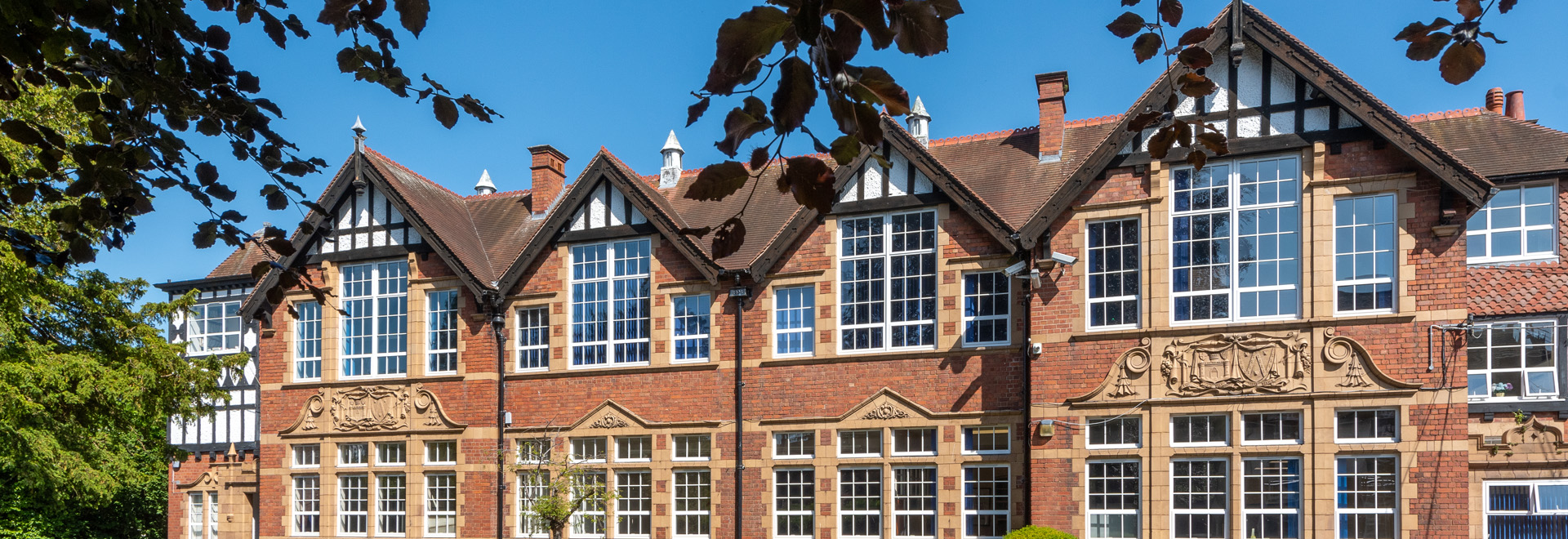
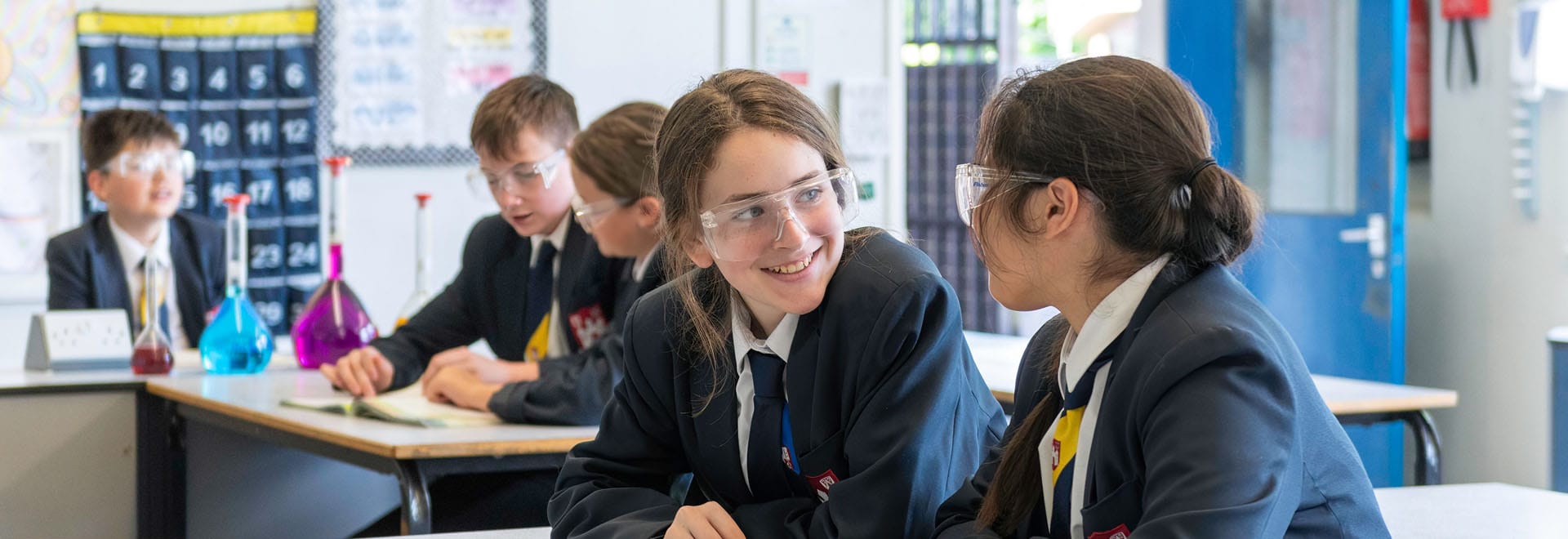




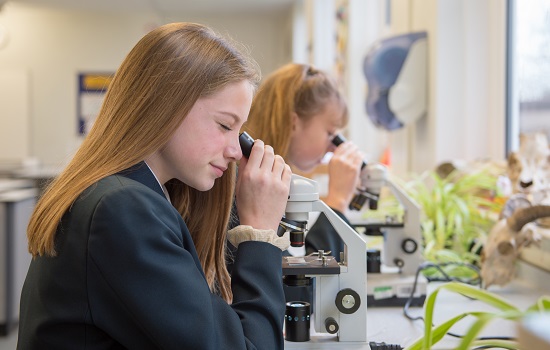
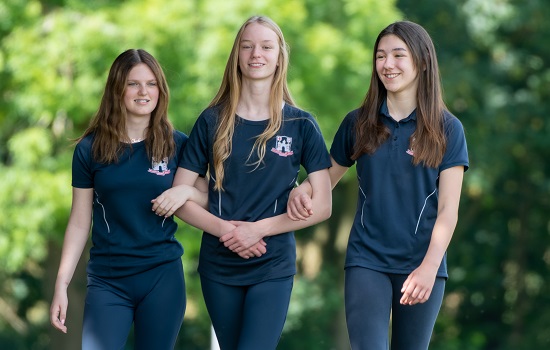
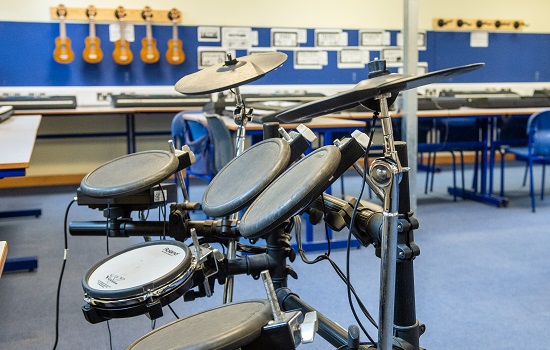


Inspiring pupils since 1503